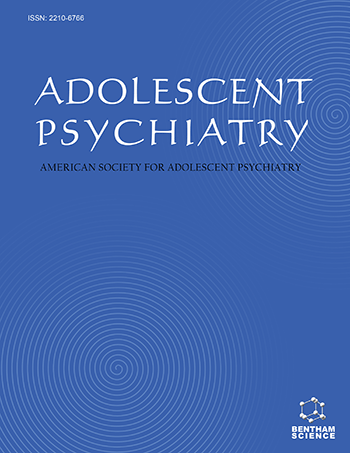Abstract
Background/Objective: This study was needed to determine if religious retreats, particularly extended three-day retreats, had any impact on the disruptive behavior of incarcerated adolescents attending the retreat compared to those who did not attend.
Method: The authors compared the number of Behavior Time-Outs (BTOs) assigned by staff (a measure of disruptive behaviors) to those attending the retreat and to those who did not attend the retreat; these were compared for both groups at one month before the retreat and at one and three months after the retreat. The retreat and control groups were compared for using statistical analysis (chi square, t test and repeated measure ANOVA) to detect differences between the groups and the statistical significance of the retreat on BTOs for the retreat group.
Results: The number of BTOs in the retreat group fell from a baseline of 3.82 to 2.42 per week at one month and 2.26 per week at three months. At the same time the control group displayed an increase in BTOs from 3.84 at baseline to 4.06 at one month and then to 3.50 at three months. When the retreat group BTOs were compared to that of the control group over time, our analyses revealed a significant within group by time interaction, F = 4.42, p 0.039. We also noted a significant between effect for groups at F= 5.26, p = 0.024.
Conclusions: These data suggest that a religious retreat like Epiphany can lower disruptive behavior, at least over a three month term. Correctional facilities may want to investigate the addition of similar types of faithbased interventions to the milieu. Further studies are needed to substantiate this finding.
Keywords: Adolescents, chaplains, delinquency, disruptive behavior, faith-based programs, religion.
Adolescent Psychiatry
Title:Impact of Religious Retreats on Disruptive Behaviors in Incarcerated Youth
Volume: 5 Issue: 4
Author(s): Patrick Holden and Rene Luis Olvera
Affiliation:
Keywords: Adolescents, chaplains, delinquency, disruptive behavior, faith-based programs, religion.
Abstract: Background/Objective: This study was needed to determine if religious retreats, particularly extended three-day retreats, had any impact on the disruptive behavior of incarcerated adolescents attending the retreat compared to those who did not attend.
Method: The authors compared the number of Behavior Time-Outs (BTOs) assigned by staff (a measure of disruptive behaviors) to those attending the retreat and to those who did not attend the retreat; these were compared for both groups at one month before the retreat and at one and three months after the retreat. The retreat and control groups were compared for using statistical analysis (chi square, t test and repeated measure ANOVA) to detect differences between the groups and the statistical significance of the retreat on BTOs for the retreat group.
Results: The number of BTOs in the retreat group fell from a baseline of 3.82 to 2.42 per week at one month and 2.26 per week at three months. At the same time the control group displayed an increase in BTOs from 3.84 at baseline to 4.06 at one month and then to 3.50 at three months. When the retreat group BTOs were compared to that of the control group over time, our analyses revealed a significant within group by time interaction, F = 4.42, p 0.039. We also noted a significant between effect for groups at F= 5.26, p = 0.024.
Conclusions: These data suggest that a religious retreat like Epiphany can lower disruptive behavior, at least over a three month term. Correctional facilities may want to investigate the addition of similar types of faithbased interventions to the milieu. Further studies are needed to substantiate this finding.
Export Options
About this article
Cite this article as:
Holden Patrick and Luis Olvera Rene, Impact of Religious Retreats on Disruptive Behaviors in Incarcerated Youth, Adolescent Psychiatry 2015; 5 (4) . https://dx.doi.org/10.2174/2210676606666160502130502
| DOI https://dx.doi.org/10.2174/2210676606666160502130502 |
Print ISSN 2210-6766 |
| Publisher Name Bentham Science Publisher |
Online ISSN 2210-6774 |
 56
56 1
1 1
1 1
1
- Author Guidelines
- Graphical Abstracts
- Fabricating and Stating False Information
- Research Misconduct
- Post Publication Discussions and Corrections
- Publishing Ethics and Rectitude
- Increase Visibility of Your Article
- Archiving Policies
- Peer Review Workflow
- Order Your Article Before Print
- Promote Your Article
- Manuscript Transfer Facility
- Editorial Policies
- Allegations from Whistleblowers
Related Articles
-
Problematic Internet Use: A Case of Social Media Addiction
Adolescent Psychiatry Depression, Stress Symptoms, and Cortisol Awakening Response in Female Adolescents with Chronic Headache
Adolescent Psychiatry An Adolescent Psychiatrist Looks at the Story of Adolescent Addiction in The Basketball Diaries by Jim Carroll
Adolescent Psychiatry LECTURES
Adolescent Psychiatry Depression in Adolescent Suicide Attempters: A Cross-Sectional Comparative Study
Adolescent Psychiatry Global Child and Adolescent Mental Health Needs: Perspectives from a National Tertiary Referral Center in India
Adolescent Psychiatry Is Knowledge Enough? The Relationship Between Mental Health Knowledge and Stigmatising Attitudes Among Australian Adolescents
Adolescent Psychiatry Destruction as a Means of Survival: The Paradigm of Modern Psychopathology
Adolescent Psychiatry Early Intervention in Psychosis: Rationale, Results and Implications for Treatment of Adolescents at Risk
Adolescent Psychiatry Effectiveness of Wet Sheet Packs in Children and Adolescents with Severe Auto/Hetero Aggressive Behaviors: An Exploratory Approach
Adolescent Psychiatry Management of Suicidal Adolescents Presenting to the Emergency Department
Adolescent Psychiatry Mind-Body Practices and the Adolescent Brain: Clinical Neuroimaging Studies
Adolescent Psychiatry Overcoming Treatment Barriers in Adolescent Psychiatry
Adolescent Psychiatry Policy and Adolescent Tobacco Use Prevention
Adolescent Psychiatry Diagnosis and Treatment of Common Sleep Disorders in Adolescence
Adolescent Psychiatry Use of Mental Health Services By Youths Who Have Sexually Offended
Adolescent Psychiatry Trauma, Adolescent Transformation, and Parenthood
Adolescent Psychiatry Helping Parents Promote Healthy and Safe Computer Habits
Adolescent Psychiatry Seizures Secondary to Bupropion Misuse/Abuse: Three Cases
Adolescent Psychiatry Treatment Outcome of Three Female Adolescents with Borderline Personality Disorder
Adolescent Psychiatry

























